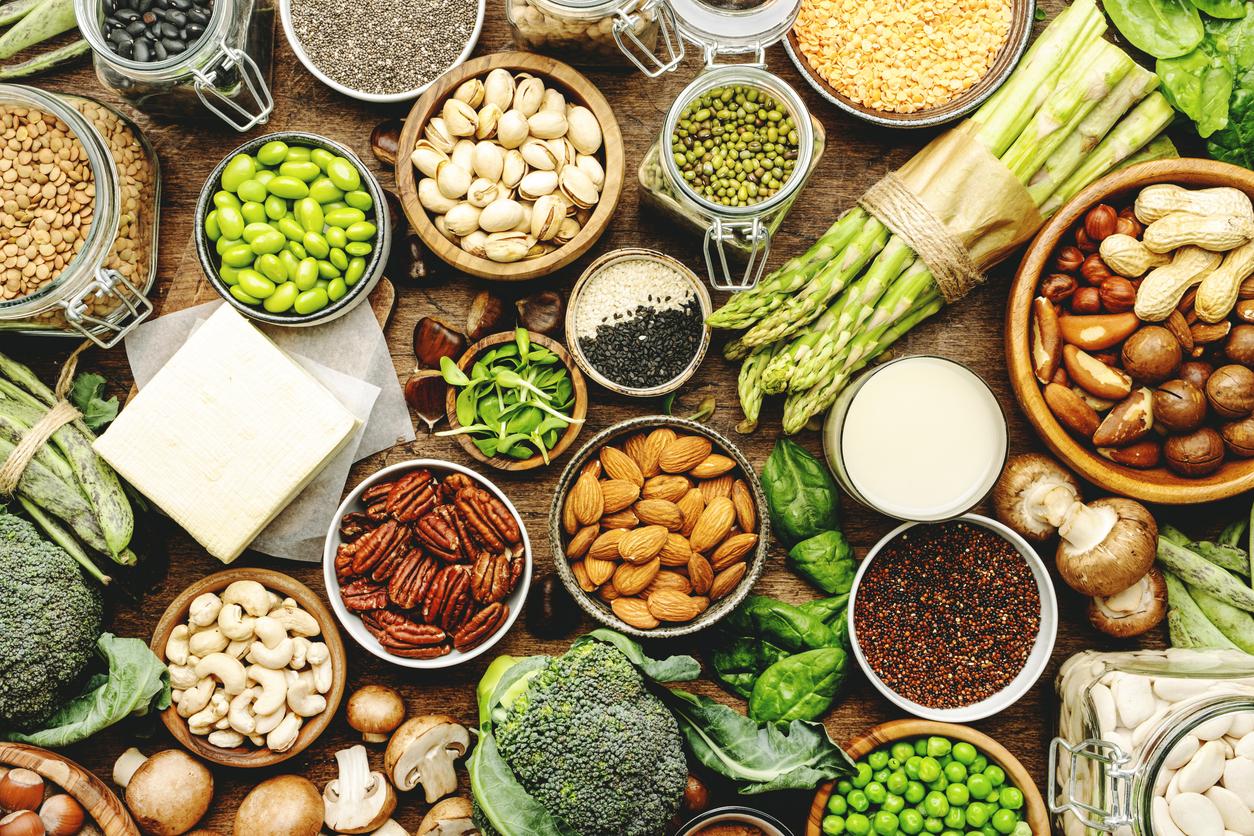Many studies have shown that chronic inflammation is the cause of diseases such as type 2 diabetes, obesity, arthritis, endometriosis and even certain cancers. These pathologies settle slowly and often without apparent symptoms. Consuming foods with anti-inflammatory properties, but also paying attention to your lifestyle (physical activity, sleep, stress management), would help prevent their appearance.
What is the difference between acute inflammation and chronic inflammation?
# acute inflammation occurs when the body has to deal with a virus or bacteria, an insect bite, a shock…
# chronic inflammationit is long-lasting, often without visible signs and can favor the appearance of diseases such as:
- osteoarthritis,
- psoriasis,
- asthma,
- obesity,
- diabetes,
- cancer,
- cardiovascular illnesses,
- autoimmune diseases…
This chronic inflammation appears in part because of poor dietary habits, including a diet:
- too rich in saturated fatty acids (fatty meats and fatty dairy products), in sugarin calories And
- too poor in omega 3 fatty acids.
What is an anti-inflammatory diet?
It is a diet that emphasizes the eating foods that reduce inflammation in the body, while avoiding foods that can cause it. Its outline? Eat a wide variety of foods, as fresh as possible, with a high proportion of fruits and vegetables and limit the consumption of refined foods. The flagship foods of the anti-inflammatory diet are similar to those featured in the Mediterranean diet, namely foods rich in antioxidants, omega-3s and fiber, which are anti-inflammatory substances.
What are the best anti-inflammatory foods?
The anti-inflammatory plate consists of:
- fruits and vegetables (especially the richest in antioxidants), preferably organic, local and seasonal;
- whole grain products;
- legumes;
- oily fish (rich in omega 3 fatty acids);
- seeds and oilseeds (walnuts, almonds, hazelnuts, etc.);
- vegetable oils, including olive oil;
- aromatic herbs and spices, including turmeric, ginger and rosemary.
In this slideshow, we list 9 foods that are perfectly compatible and even recommended as part of an anti-inflammatory diet.
Anti-inflammatory diet: foods to avoid
On the other hand, there are certain foods that contribute to chronic inflammation and can make symptoms worse in people with inflammatory conditions, or even increase the risk of developing a chronic disease. Here are the foods to limit (or avoid):
- processed foods, high in added sugars and trans fats. For example: industrial biscuits, ready meals, breakfast cereals, pastries, sugary drinks, sweets, crisps, frozen pizzas…
- Red meats. These often contain saturated fats which can increase inflammation. It is best to eat plant-based proteins, such as tofu, beans, lentils and peas.
- Dairy products made from cow’s milk. They contain proteins that can trigger an inflammatory response in the body – especially if you are lactose intolerant or have digestive issues.
- Refined cereals, such as white bread, white pasta or white rice. Refined grains have been processed in a way that strips them of nutrients, which can lead to inflammation in the body.
- Sugar. Rapidly absorbed by the body, it causes a rapid rise in blood sugar and insulin, which can trigger an inflammatory response in the body.
- The alcoholwhich also promotes inflammation.
What are the benefits of adopting an anti-inflammatory diet?
By eating an anti-inflammatory diet, you can help reduce inflammation in your body and improve your overall health. The benefits of such a diet are multiple:
- prevent the onset of chronic diseases,
- protect the immune system,
- prevent cellular aging thanks to antioxidants,
- good for the gut microbiota,
- improve skin and hair health,
- improve cognitive function
- slow down digestion and promote the feeling of satiety, to avoid cravings, thanks to the high fiber content of anti-inflammatory foods.
It should be noted, however, that adopting an anti-inflammatory diet should not be seen as a silver bullet, but rather as a tool to help reduce inflammation in your body. It’s also important to consult a healthcare professional before making any major changes to your diet.
Anti-inflammatory diet and endometriosis
Endometriosis is a chronic disease characterized by the presence of endometrial tissue outside the uterus. It often causes intense menstrual pain, abnormal bleeding and, sometimes, infertility in women. It has been shown that adopting a anti-inflammatory diet may help relieve symptoms of endometriosis. Indeed, this gynecological disease is associated with chronic inflammation in the body, which can contribute to pain and other symptoms of the disease. Adopting an anti-inflammatory diet can help reduce this inflammation.
In addition, intestinal health problems, such as irritable bowel syndrome and intestinal dysbiosis, are often associated with endometriosis. The anti-inflammatory diet encourages the consumption of fiber-rich foods, such as fruits, vegetables, and whole grains, which can improve digestion and help maintain a healthy intestinal flora.
Also, endometriosis is often associated with hormonal imbalance, especially excessive production of estrogen. Certain foods recommended in an anti-inflammatory diet, such as cruciferous vegetables, legumes, and nuts, contain phytochemicals that may help balance hormone levels in the body.
Finally, anti-inflammatory foods such as fruits and vegetables rich in antioxidants, spices like turmeric, and fish rich in omega-3s, can help reduce pain associated with endometriosis.
What more can you do to fight inflammation?
In addition to adopting an anti-inflammatory diet, other actions can be taken to reduce inflammation in the body. First of all, engage in regular physical activity. The National Health Nutrition Program (PNNS) recommends doing less than 30 minutes of dynamic physical activity per day, such as walking, cycling, running, rollerblading… but also gardening, DIY or housework. In addition, and “for more health benefits, it is recommended to do muscle strengthening, flexibility and balance activities twice a week”, specifies the mangerbouger.fr site.
Additionally, chronic stress can trigger an inflammatory response in the body. It is therefore important to find ways to manage stress, such as meditation, yoga, deep breathing or muscle relaxation. Lack of sleep can also contribute to chronic inflammation. It is recommended get enough sleep – at least 7 hours per night.
THE environmental toxins such as air pollution, household chemicals, pesticides, etc., are also ignition factors. It is therefore important to avoid excessive exposure to these toxins. Finally, some food supplements can help reduce inflammation in the body, such as omega-3s, curcumin or even vitamin D. But beware: supplementation should only be done in the event of a proven deficiency, and after discussing it with a healthcare professional.
Sources:
- Laetitia Proust-Millon, The Big Book of Anti-Inflammatory DietEditions Leduc, 2018
- Dr Catherine Lacrosniere, The anti-inflammatory dietEditions Albin Michel, 2019
- Foods you should eat to help fight inflammationHarvard Health2022


























